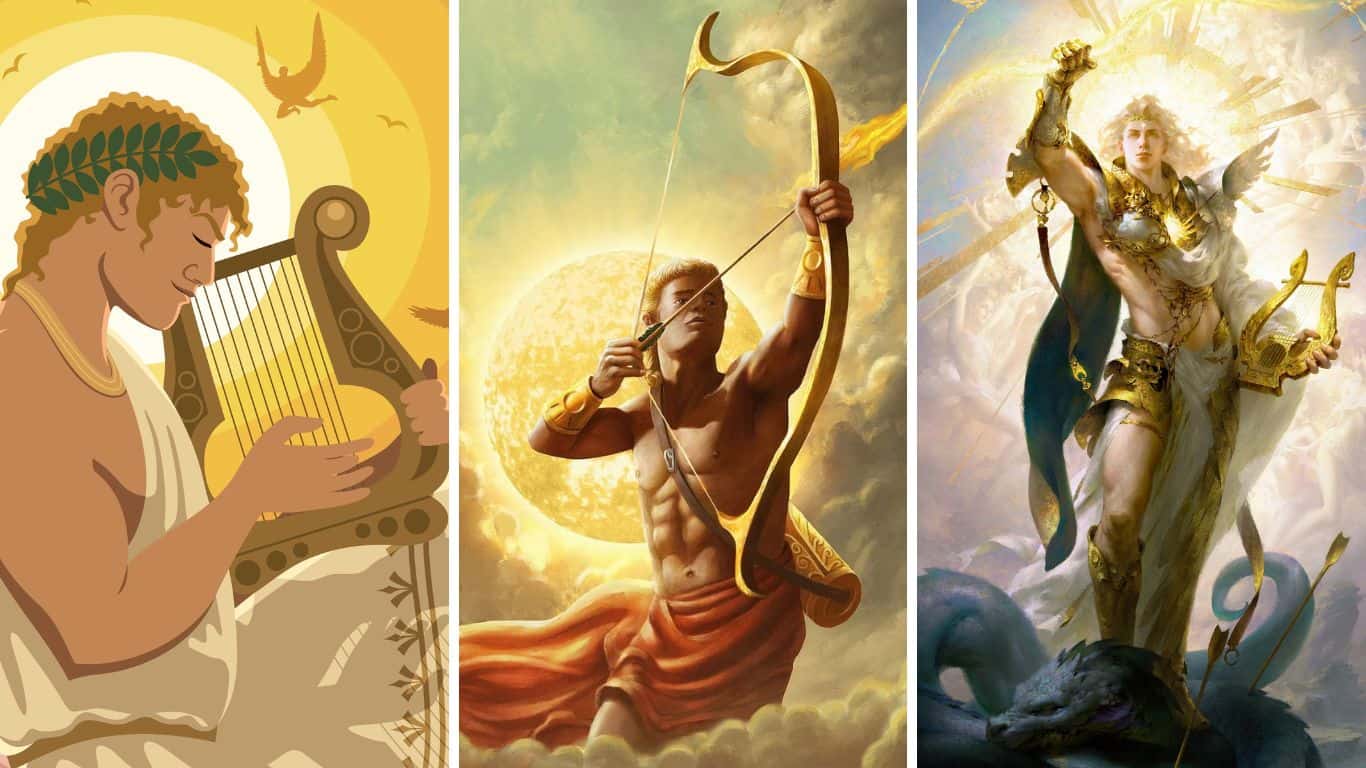Apollo is one of the most important gods in Greek mythology. He was one of the Twelve Olympians, the principal deities of the Greek pantheon. He was associated with various domains, including music, poetry, prophecy, healing, and the sun. He was also known for his beauty, youthfulness, and athleticism and was often depicted with a lyre, a bow, arrows, or a laurel wreath.
In Greek mythology, Apollo was the son of Zeus and Leto and the twin brother of Artemis. He was born on the island of Delos, where his mother had taken refuge from the wrath of Hera, Zeus‘ jealous wife. According to legend, Apollo was a gifted musician and poet from a young age, and he was often called upon to entertain the other gods with his songs and stories.
He was also a skilled archer and a powerful healer and was believed to be able to cure diseases and ward off evil spirits. Over time, Apollo became one of the most beloved and revered deities in the Greek pantheon, and his cult spread throughout Greece and beyond.
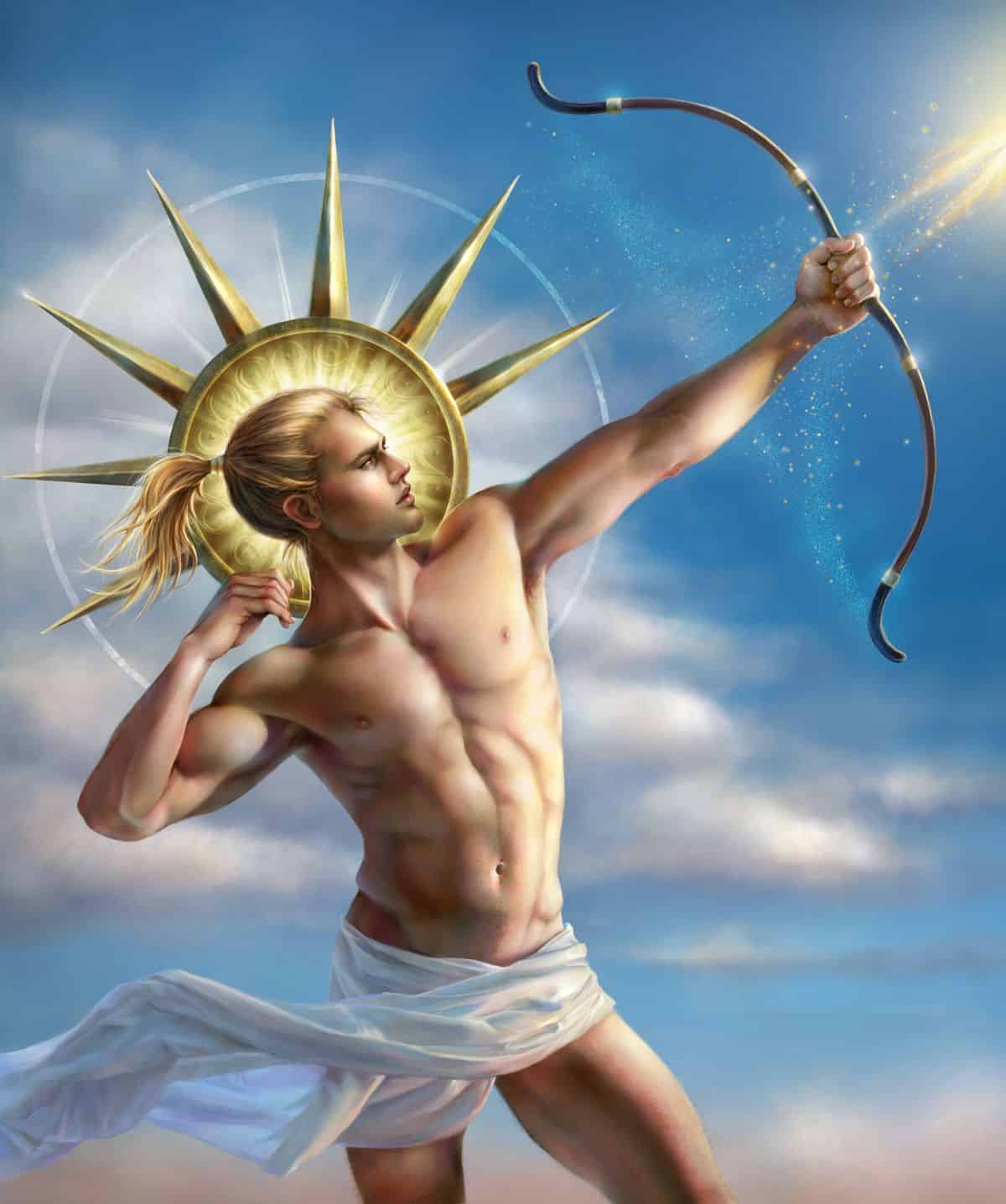
History and Mythology
Apollo is one of Greek mythology’s most essential and widely worshipped gods. He is the son of Leto and Zeus and the twin brother of Artemis. Apollo was born on the island of Delos, and his birth was a significant event in Greek mythology.
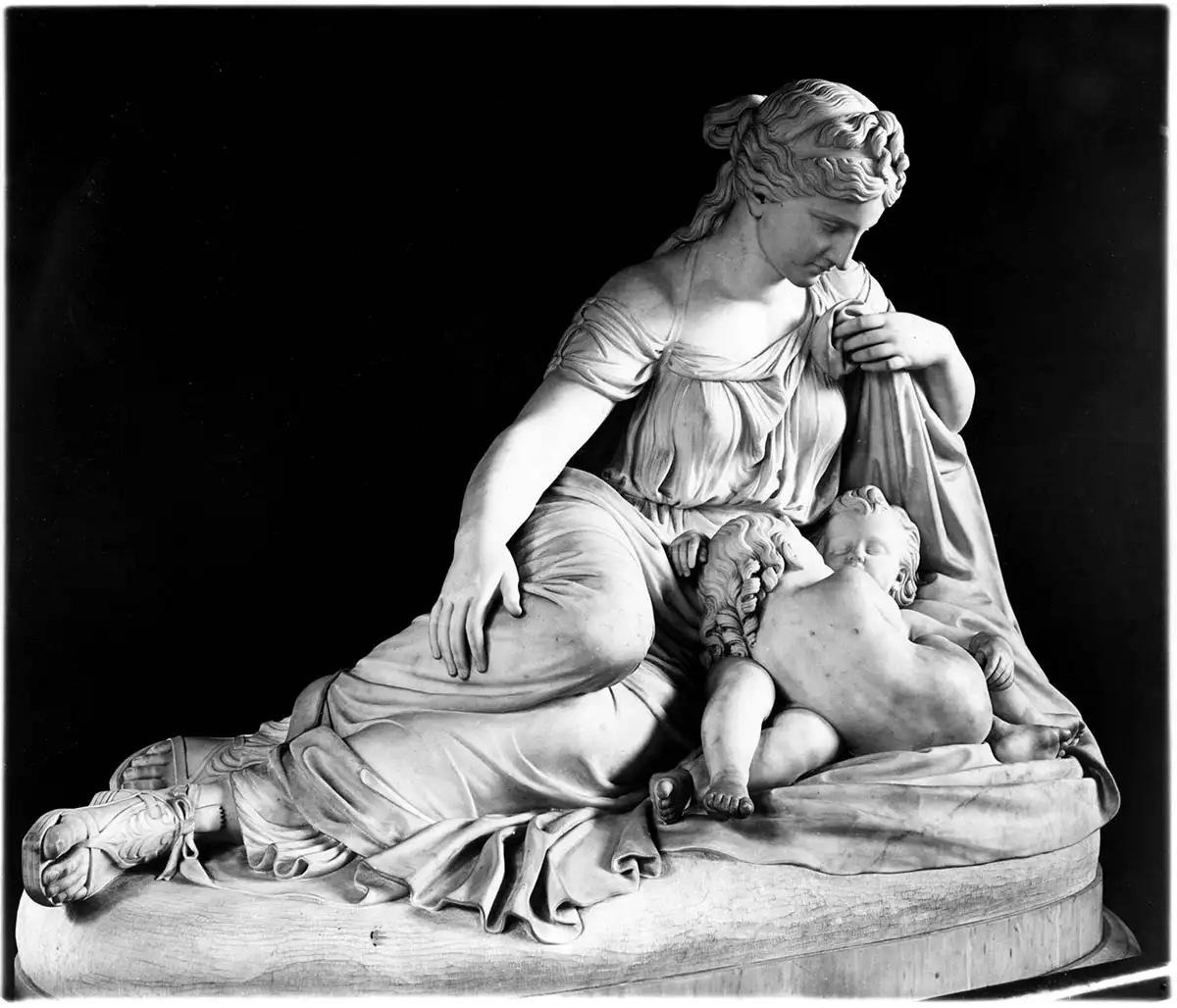
Birth and Family
Zeus impregnated Leto, but Hera, Zeus’s wife, was jealous of Leto and pursued her relentlessly. Leto eventually found refuge on the island of Delos, where she gave birth to Apollo and Artemis. Apollo’s birth was significant because he was one of the few gods born mortal and later became immortal.
Powers and Symbolism
Apollo was the god of music, poetry, prophecy, and healing. He was also associated with the sun and light. Apollo was known for his beauty, often depicted with a lyre or a bow and arrow. He was also associated with the laurel tree, which was believed to have healing properties.
Myths and Legends
Apollo was involved in many myths and legends in Greek mythology. One of the most famous stories involving Apollo is the myth of Python. Python was a dragon-like creature that lived near Delphi. Apollo killed Python and took over the Oracle at Delphi.
Another famous story involving Apollo is the myth of Daphne. Daphne was a nymph who Apollo pursued. Daphne prayed to her father, the river god Peneus, to help her. Peneus turned Daphne into a laurel tree, which became sacred to Apollo.
Apollo was also associated with the story of Orpheus, a musician who went to the underworld to try and bring his wife back from the dead. Apollo gave Orpheus his lyre and helped him on his journey.
Apollo was an important figure in Greek mythology, and his stories and legends continue to be told today. He was associated with music, poetry, prophecy, and healing and was known for his beauty and strength. Apollo’s birth and family, powers and symbolism, and myths and legends are essential to his story.
Attributes and Symbolism
Apollo was among the most important Greek gods, associated with many attributes and symbols. These symbols helped to define his role and personality and were an essential part of his mythology and worship.
Music and Poetry
One of the most well-known attributes of Apollo was his association with music and poetry. He was often depicted holding a lyre, a stringed instrument he was said to have invented. Apollo was also considered the patron of the arts and believed to inspire creativity and artistic expression in mortals.
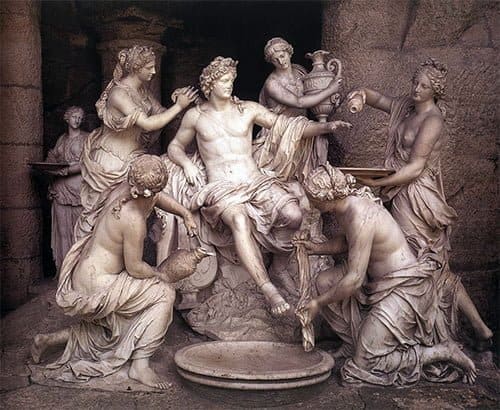
Sun and Light
Apollo was also associated with the sun and light. He was often depicted driving a chariot across the sky, pulling the sun behind him. As a result, he was seen as a powerful and radiant god, often associated with qualities like strength, courage, and clarity.
Arts and Order
In addition to music and poetry, Apollo was also associated with other forms of art and creativity. He was considered the god of prophecy and oracles and often consulted for advice and guidance. Apollo was also associated with law and order and was believed to uphold justice and morality.
Medicine and Healing
Finally, Apollo was also associated with medicine and healing. He was believed to have the power to cure diseases and illnesses and was often called upon to heal the sick.
Apollo was also associated with the Python, a snake believed to have healing powers.
Apollo was a complex and multifaceted god with many attributes and symbols.
Whether he was associated with music and poetry, the sun and light, the arts and order, or medicine and healing, Apollo was an important figure in Greek mythology, and he continues to be celebrated and revered today.
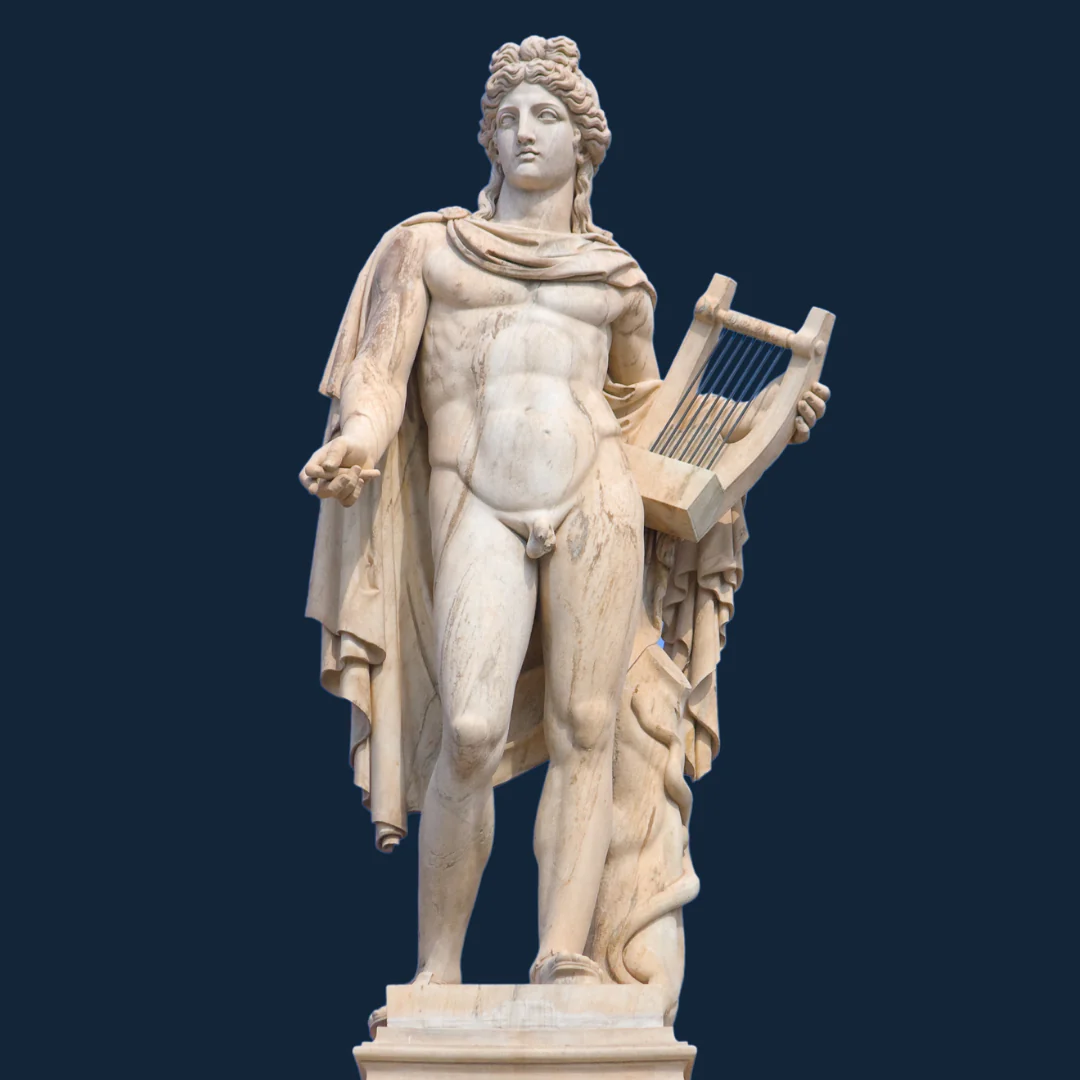
Worship and Sanctuaries
The worship of Apollo was a significant aspect of ancient Greek religion. Apollo was among the twelve Olympian gods associated with the sun, light, music, and prophecy. He was also the god of healing, archery, and poetry.
Apollo was worshipped throughout Greece, and many sanctuaries were dedicated to him.
Oracle of Delphi
The most famous sanctuary of Apollo was the Oracle of Delphi, located in central Greece. The oracle was a priestess who delivered prophecies in the name of Apollo.
The oracle was consulted by Greeks from all over the Mediterranean, seeking advice on matters ranging from personal issues to major political decisions.
The prophet was considered the most reliable source of prophecy in the ancient world.
Pythian Games
Another essential aspect of Apollo’s worship was the Pythian Games, held in honor of Apollo every four years at Delphi. The games included athletic contests, music competitions, and poetry readings.
The Pythian Games were second in importance only to the Olympic Games and attracted competitors and spectators from all over Greece.
Shrines and Temples
Apollo was also worshipped in many other sanctuaries throughout Greece. These included small shrines and prominent temples, ranging from simple structures to elaborate buildings with columns and sculptures.
Some of the most significant monasteries of Apollo were located in Delos, Delphi, and Didyma.
Apollo’s companions were also worshipped in many of these sanctuaries. These included the Muses, the nine goddesses of the arts, and the Graces, the three goddesses of beauty, charm, and grace.
Apollo was worshipped throughout Greece in many sanctuaries, including the famous Oracle of Delphi and the Pythian Games.
The covers dedicated to Apollo were important centers of religious and cultural life in ancient Greece.

Legacy and Influence
The legacy of the Greek god Apollo is vast, and his influence can be seen in various aspects of art, culture, science, and society. This section will explore how Apollo left his mark on humanity.
Art and Literature
Apollo was a popular subject in Greek and Roman mythology, and his image was often depicted in various art forms.
The Apollo Belvedere statue, created in the 2nd century AD, is one of the most well-known representations of the god. This statue is considered a masterpiece of ancient Greek art and is now housed in the Vatican Museum.
Apollo’s influence can also be seen in the literature. He was a patron of the arts and known for his musical talents, which inspired many poets and writers.
In Homer’s epic poem, the Iliad, Apollo is depicted as a fearsome warrior who sides with the Trojans.
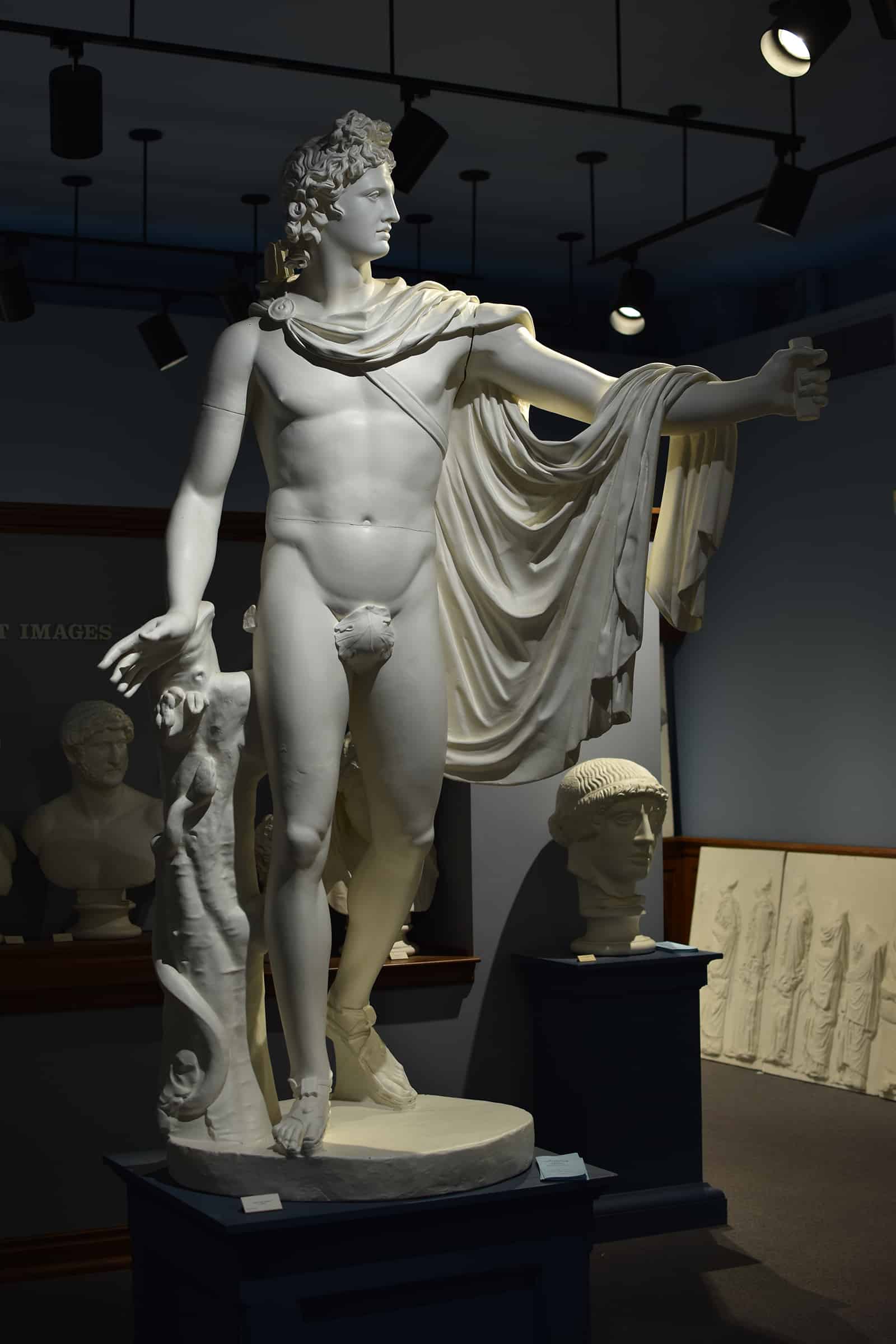
Culture and Society
Apollo played a significant role in Greek society, and many festivals and celebrations were dedicated to him. The Pythian Games, held every four years at Delphi, were one of the most significant events in ancient Greece and were committed to Apollo.
The god was also associated with purification and was often called upon to cleanse individuals or communities of their sins.
Apollo’s influence can also be seen in the Greek language. The Linear B tablets, which date back to the Mycenaean civilization, contain references to Apollo, indicating that the god was worshipped even before the classical period.
Science and Dictionary
Apollo’s influence extends beyond art and culture and can also be seen in science and language. The word “distance” comes from the Latin word “distantia,” which means “to stand apart.”
This word is derived from the phrase “dis-stare,” used in ancient Rome to describe the distance between the earth and the sun. Apollo was the god of the sun, and his association with distance is reflected in the word’s etymology.
Apollo was also associated with terror, and the word “terror” is derived from the Latin word “terrere,” which means “to frighten.”
This word was often used to describe the fear people felt when encountering Apollo, known for his wrathful temper.
In addition to these words, many other words in the English language have their roots in Apollo’s mythology. For example, “paeans” refers to songs of praise, and “lyceum” refers to a place of learning.
Overall, the legacy and influence of Apollo are vast and far-reaching. From art and literature to culture and science, god has countless times left his mark on humanity.
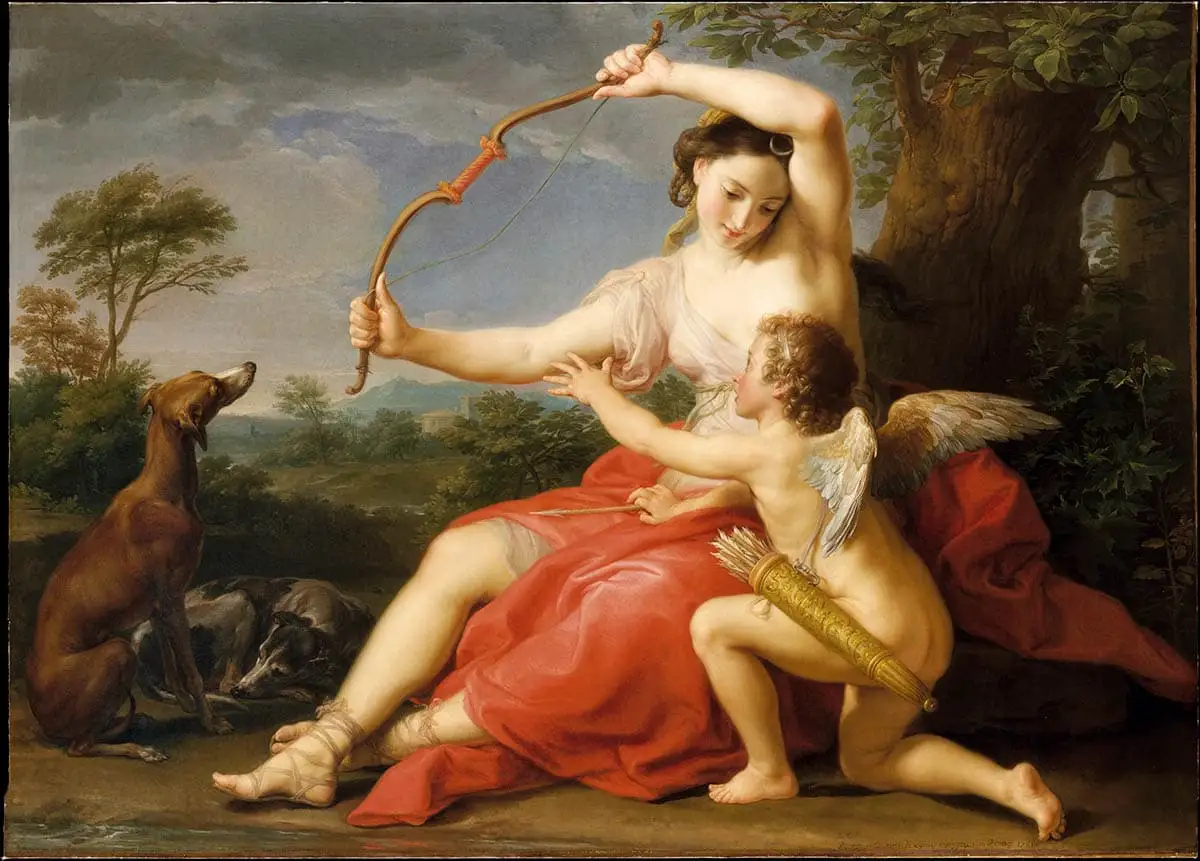
Some Interesting Facts of Greek God Apollo
- Apollo was the son of Zeus, the king of the gods, and Leto, a Titaness.
- His birth was unusual because Hera, Zeus’ wife, was jealous of Leto. As a result, Leto had to wander the earth for a time before finding a place to give birth to Apollo and Artemis.
- Apollo had many love affairs with both mortals and gods. Some of his notable romantic interests included Daphne, Coronis, and Cyrene.
- His pursuit of Daphne resulted in her transformation into a laurel tree, which became one of Apollo’s sacred plants.
- Apollo had many children. Among his notable offspring were Asclepius, the god of healing, and Orpheus, a legendary musician and poet.
- Apollo’s symbols included the laurel wreath, symbolizing victory and poetic achievement.
- He was often depicted holding a bow and arrows, representing his skill as an archer.
- The sun was also associated with Apollo, representing his connection to light and enlightenment.
- Apollo was widely worshipped throughout ancient Greece. Delphi was one of the most important centers of his worship, where the Oracle of Delphi served as his mouthpiece.
- Many festivals were held in his honour, such as the Pythian Games and the Carneia.
- Apollo played a significant role in the Trojan War. He supported the Trojans and helped guide Paris’ arrow to kill Achilles.
- He was involved in a musical contest with the satyr Marsyas, which Apollo won. As punishment for his hubris, Marsyas was flayed alive.
- Apollo was responsible for killing the Cyclops in retaliation for Zeus’ thunderbolts, which the Cyclops had forged for him.
- He also aided the hero Heracles (Hercules) in his quests, providing guidance and protection.
- Apollo could bring about plagues and diseases and cure them, showcasing his dual nature.
- He was believed to be a skilled musician and poet, inspiring creativity and artistic endeavors.
- Apollo’s epithets included “Phoebus Apollo,” emphasizing his connection to light, and “Smintheus,” a title associated with protecting crops from pests.

